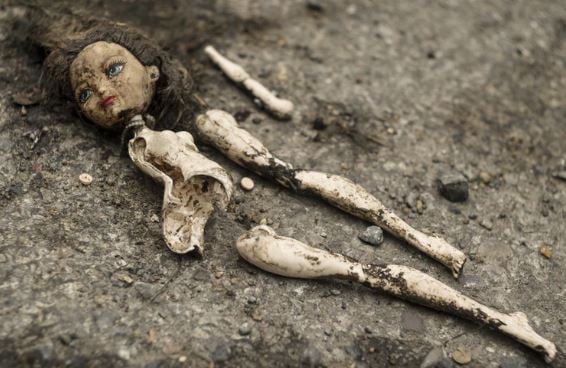I’m an adult child of an alcoholic, or an “ACA.”
My mother was an untreated alcoholic until my early teens. What I didn’t know was how the effects of alcoholism could reach beyond the drinker to their children.
My childhood was challenging and dysfunctional. Some days were defined by alcohol-fueled rages, and others were calm. The only constant was silence, as the alcoholism and dysfunction in our family were never discussed. I was left on my own to make sense of it all, and try to understand what the hell was going on.
But I never did. My child brain couldn’t understand my unmet needs and would learn to cope by hiding in the silence laced with shame. I felt unloved and invisible. I walked on eggshells and kept to myself. I detached and withdrew, because that was the only way I could deal with my feelings of abandonment and neglect.
I lived this way until I moved away from home at 18. I thought I’d left it all behind, full of hope because I had escaped relatively unscathed.
I was wrong.
I would carry these coping mechanisms into my adult relationships. They started out euphoric but usually blew up in a spectacular fashion. I thought I was chasing the happiness I never had, but the truth is I wasn’t chasing anything—I was running for my life from the issues that plagued me since childhood—insecurity and low self-esteem, fear of abandonment, and the emptiness of isolation.
I paired codependency with massive denial to numb my pain and anxiety. If I kept moving, fucking, and loving, I could stay ahead of the overwhelming fear that I wasn’t good enough. But after decades of running, my demons caught me and broke me. I hit my emotional rock-bottom, when enough was mercifully enough.
If this sounds familiar, you are not alone.
We struggle as adults because we never learned to set boundaries or take care of ourselves as children. We never learned how to attach in healthy ways. We blamed ourselves and shut down. We turned to people-pleasing as a way to control our environment. We learned all kinds of unhealthy coping mechanisms as children and perpetuated them as adults.
We were following the ACA script but never knew it. We repeated our own poor choices and dysfunctional relationships, unconsciously searching for a bottom we didn’t know we needed.
It was only after destroying my life several times over that I was finally able to look at my life objectively and admit my issues from growing up as an ACA. And with that came the realization that it was my responsibility to heal myself.
My first major step happened when my therapist handed me, “The Laundry List: 14 Traits of an Adult Child of an Alcoholic.” I was resistant, and afraid that I would see myself on this list:
1. We became isolated and afraid of people and authority figures.
2. We became approval seekers and lost our identity in the process.
3. We are frightened by angry people and any personal criticism.
4. We either become alcoholics, marry them—or both, or find another compulsive personality such as workaholic to fulfill our sick abandonment needs.
5. We live life from the viewpoint of victims and we are attracted by that weakness in our love and friendship relationships.
6. We have an overdeveloped sense of responsibility and it is easier for us to be concerned with others rather than ourselves; this enables us not to look too closely at our own faults.
7. We get guilt feelings when we stand up for ourselves instead of giving in to others.
8. We became addicted to excitement.
9. We confuse love and pity and tend to “love” people we can “pity” and “rescue.”
10. We have “stuffed” our feelings from our traumatic childhoods and have lost the ability to feel or express our feelings because it hurts so much (denial).
11. We judge ourselves harshly and have a low sense of self-esteem.
12. We are dependent personalities who are terrified of abandonment and will do anything to hold on to a relationship in order not to experience painful abandonment feelings, which we received from living with sick people who were never there emotionally for us.
13. Alcoholism is a family disease; and we became para-alcoholics and took on the characteristics of that disease even though we did not pick up the drink.
14. Para-alcoholics are reactors rather than actors.
It took me a while to admit, but every trait on this list was me.
Many of us don’t understand why we suffer so much, and why a happy, joyful life seems beyond our reach. We’ve been so determined to separate ourselves from our alcoholic parents that we never considered the effects of our upbringing. We mistakenly think that as adults, we have to just “get over it,” and we continue unhealthy patterns and deprive ourselves of a chance to recover.
But we can change our way of thinking and change our behaviors.
We have to want to change, and make a commitment to ourselves by getting the help we need in the form of ACA support meetings, therapy, or both.
Our healing journey is a difficult one. But if we are brave enough to work through the all the pain, and cry all the tears, we can have a chance for a life filled with the healthy relationships we thought were reserved for others. We learn that we are worthy of these things.
It’s a journey for which I am grateful. And it’s available to all of us.
“I didn’t have to scramble up and down the ladder from despair to euphoria anymore, trying to convince myself that life was either painful and terrible or joyous and wonderful. The simple truth was that life was both.” ~ Melody Beattie












Read 139 comments and reply